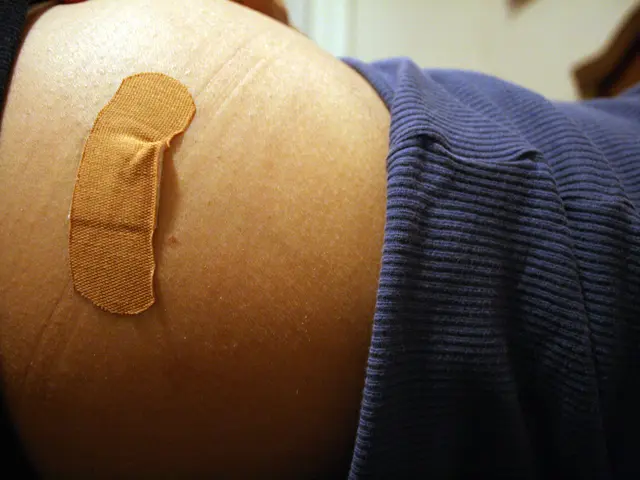Drug therapy dramatically alters migraine management strategy.
Migraines are more than just a headache; they can cause significant discomfort, often manifesting in severe symptoms days or hours before an attack. Currently, there are no specific therapies for the pre-attack phase, also known as the prodromal phase. In about 30 to 50 percent of cases, this phase, which can be accompanied by symptoms like fatigue, cognitive issues, neck pain, and increased sensitivity to light and noise, occurs hours to days before a migraine.
However, a new drug — Ubrogepant, already approved in the U.S. for acute migraine therapy — may offer some relief. Researchers in a predominantly U.S.-based study found that the medication improves symptoms of the prodromal phase in many people.
Ubrogepant's Impact on Prodromal Symptoms
The study, published in 2019, aimed to test whether the active ingredient Ubrogepant, when taken during a suspected prodromal phase, prevented headaches. Ubrogepant was approved based on these results.
Subsequently, a team led by several Abbvie employees revisited approximately 500 of the original participants to evaluate the drug's impact on the prodromal symptoms themselves. Two hours after taking the active ingredient, light sensitivity improved or disappeared in 19.5 percent of participants, compared to 12.5 percent in the placebo group. Approximately 27 percent were no longer unusually tired three hours after taking Ubrogepant, compared to about 17 percent with placebo. Furthermore, about 29 percent experienced a significant improvement in neck pain three hours after taking the active ingredient, compared to about 19 percent in the control group. Additionally, 51 percent were less sensitive to noise four hours after taking the drug, compared to about 36 percent with placebo.
Prospects for Future Studies
Despite these promising findings, more research is needed to determine whether Ubrogepant specifically targets the prevention of prodromal symptoms. As of now, studies focusing on this aspect are in progress.
Side effects like nausea, fatigue, or dizziness were rare, and no severe side effects were reported. Extrapolating these results, a "paradigm shift" in migraine treatment might be on the horizon, shifting the focus from treating pain during the headache phase to intervening during the early stages of migraine.
The Future of Migraine Treatment in Europe
While Ubrogepant has not been approved in Europe, studies on its application in Europe seem to be based on a phase III clinical trial revealing the drug's efficacy in reducing common non-headache symptoms that occur before a migraine. Further research will be necessary to understand its potential in European clinical settings fully.
Sources
- ntv.de
- Walter Willems, dpa
- The study published in 2019 on Ubrogepant's impact on the prodromal phase of migraines suggests that the medication could offer relief from symptoms like light sensitivity, fatigue, neck pain, and increased sensitivity to noise.
- Side effects associated with Ubrogepant were found to be rare, suggesting a potential for fewer adverse effects when compared to other migraine treatments.
- As Ubrogepant is not yet approved in Europe, upcoming research is essential to understand its efficacy and potential in European clinical settings, particularly in managing the prodromal symptoms of migraines.








